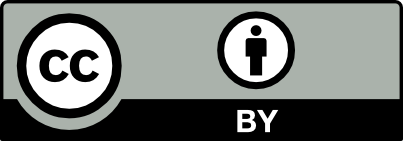The Relationship Between Supplementation and Sport
DOI:
https://doi.org/10.14232/analecta.2024.4.9-13Keywords:
food supplement, sport nutrition, food marketing, consumer preferences, fitness industryAbstract
Nowadays, the fitness industry has become a growing industry alongside the nutritional supplements industry within the food industry. Small and large companies are fighting for consumers. They offer products tailored to different training goals, whether sold online or offline. Companies are developing their marketing strategies by observing consumer preferences and habits. But do we need supplementation? Are the products on the market safe? What do we even mean by a food supplement? Is it a good idea to buy supplements that are in line with the latest trends? In this study we will show whether or not supplementation is really necessary for athletes and what determines whether it is.
Downloads
References
J. K. Ransley, J. K. Donnelly, N. W. Read (2001): Food and Nutritional Supplements, Sprinter-Verlag Berlin Heidelberg, Németország, 2001, pp. 1-15
Close, GL, Kasper, AM, Walsh, NP and Maughan, RJ “Food First but Not Always Food Only": Recommendations for Using Dietary Supplements in Sport. International Journal of Sport Nutrition and Exercise Metabolism. 2022, pp. 1-16. ISSN 1526-484X
Alsoufi A. M. (2023): Influence of packing and characteristics on consumer evaluation of food products. Iraqi Journal of Market Research and Consumer Protection, (2023) 15(2): 15-22, https://doi.org/10.28936/10.28936/(1)jmracpc11.2.2019
Xiaohan S. (2023): Decision bias: Consumer behaviour influenced by bias. Journal of Education, Humanities and Social Sciences, Volume 23 (2023): 527-531, https://doi.org/10.54097/ehss.v23i.13111
Szabó. E., Bánáti D., Szűcs V. (2023): Dietary supplements consumer study (2023)
Meyer, N.L., Reguant-Closa, A., Nemecek, T. (2020): Sustainable Diets for Athletes. Curr Nutr Rep 9, 147–162 (2020). https://doi.org/10.1007/s13668-020-00318-0
Phillips SM, Van Loon LJC. (2011) Dietary protein for athletes: from requirements to optimum adaptation. J Sports Sci. 2011;29(sup1):S29–38. https://doi.org/10.1080/02640414.2011.619204
Thomas DT, Erdman KA, Burke LM. Nutrition and athletic performance (2016) Med Sci Sports Exerc. 2016;48(3):543–68. https://doi.org/10.1249/MSS.0000000000000852
Babault N, Païzis C, Deley G, Guérin-Deremaux L, Saniez M-H, Lefranc-Millot C, et al. (2015) Pea proteins oral supplementation promotes muscle thickness gains during resistance training: a double-blind, randomized, placebo-controlled clinical trial vs. whey protein. J Int Soc Sports Nutr. 2015;12(1):3. https://doi.org/10.1186/s12970-014-0064-5
Meyer N. L., Reguant-Closa A., Nemecek T. (2020): Sustainable Diets for Athletes. Current Nutrition Reports (2020) 9:147–162 hhtps://doi.org/ 10.1007/s13668-020-00318-0
Kovács I., Liska F., Veres Z. (2023): Motivational Drivers behind the Consumption of Dietary Supplements by Leisure-Time Athletes. Foods 2023, 12, 3044, https://doi.org/10.3390/foods12163044
P. Peeling, L. M. Castell, W. Derave, O. Hon, L. M. Burke (2019): Sports Foods and Dietary Supplements for Optimal Function and Performance Enhancement in Track-and-Field Athletes. International Journal of Sport Nutrition and Exercise Metabolism, 2019, 29, 198-209, https://doi.org/10.1123/ijsnem.2018-0271
Downloads
Published
How to Cite
Issue
Section
License
Copyright (c) 2024 Gréta Újvári, Brigitta Zsótér, Zoltán Veres

This work is licensed under a Creative Commons Attribution 4.0 International License.
Copyright (C) 2024 Authors
This work is licensed under a Creative Commons Attribution 4.0 International License.













